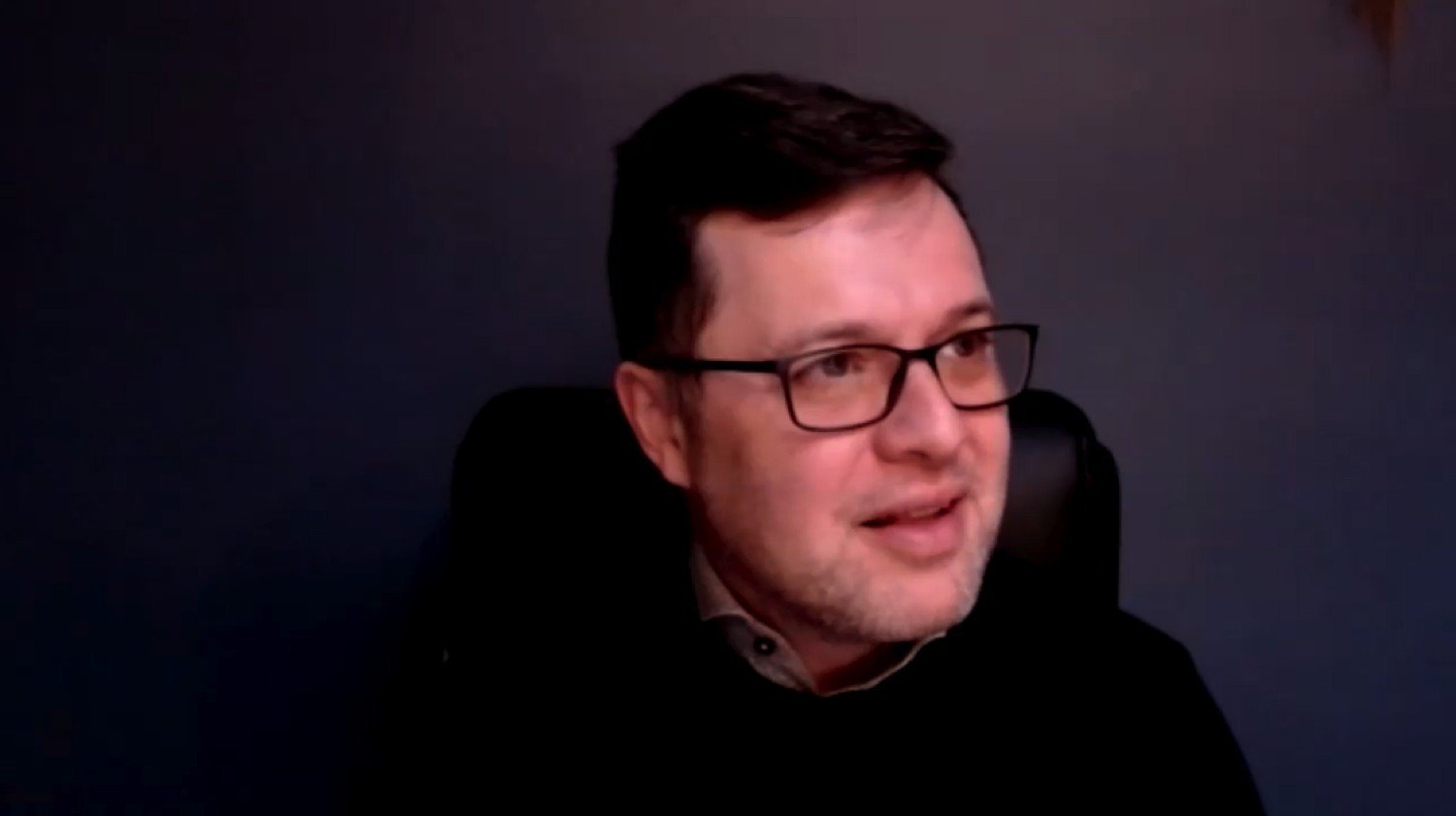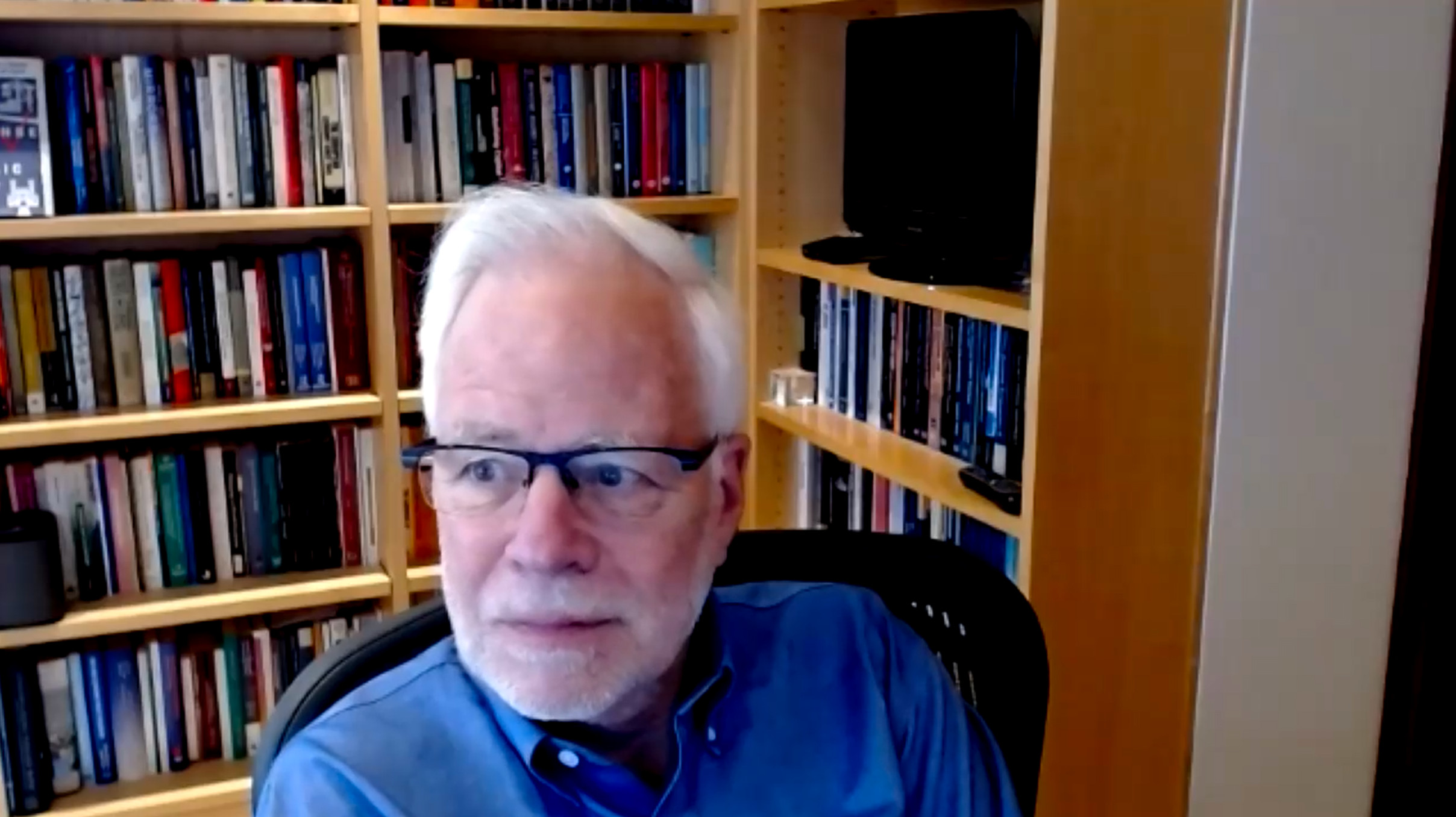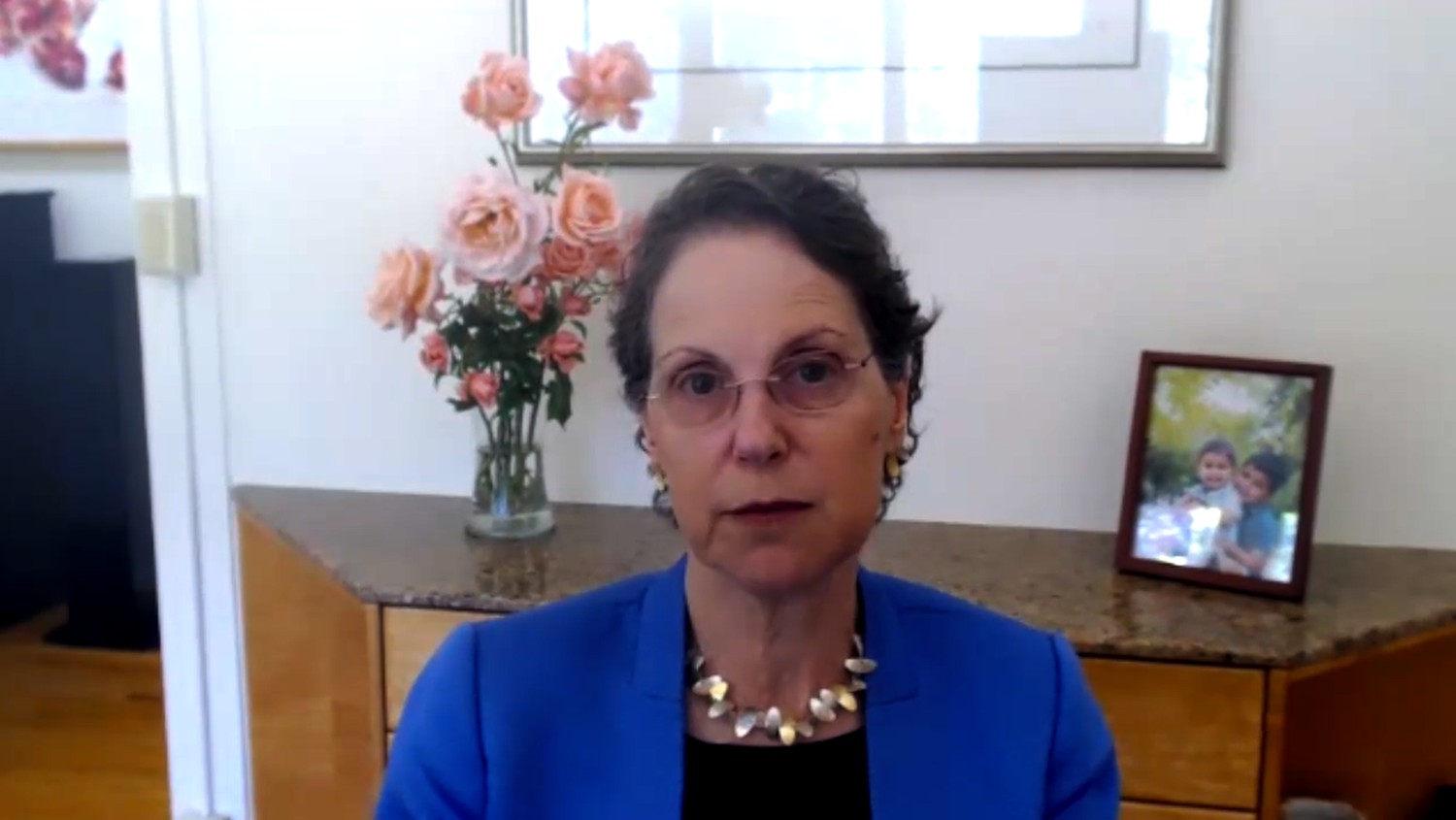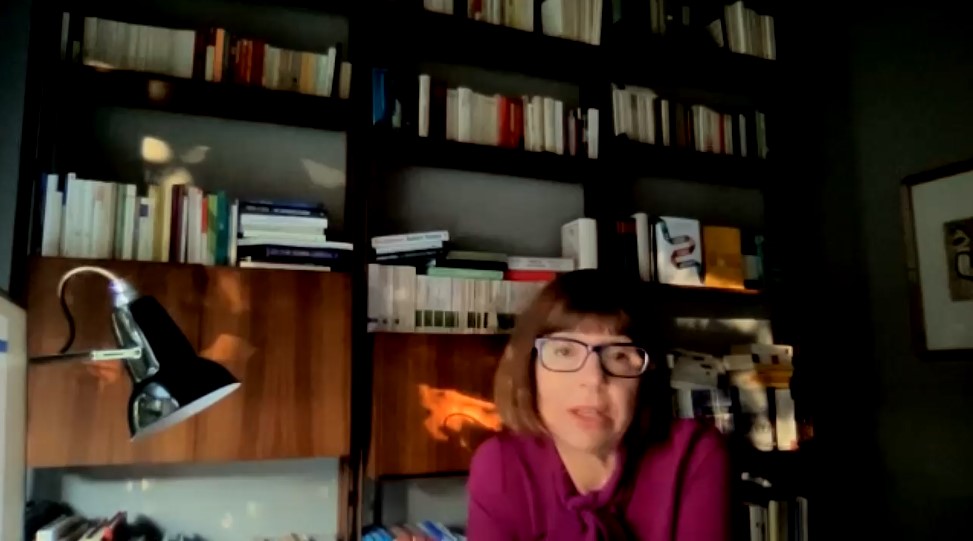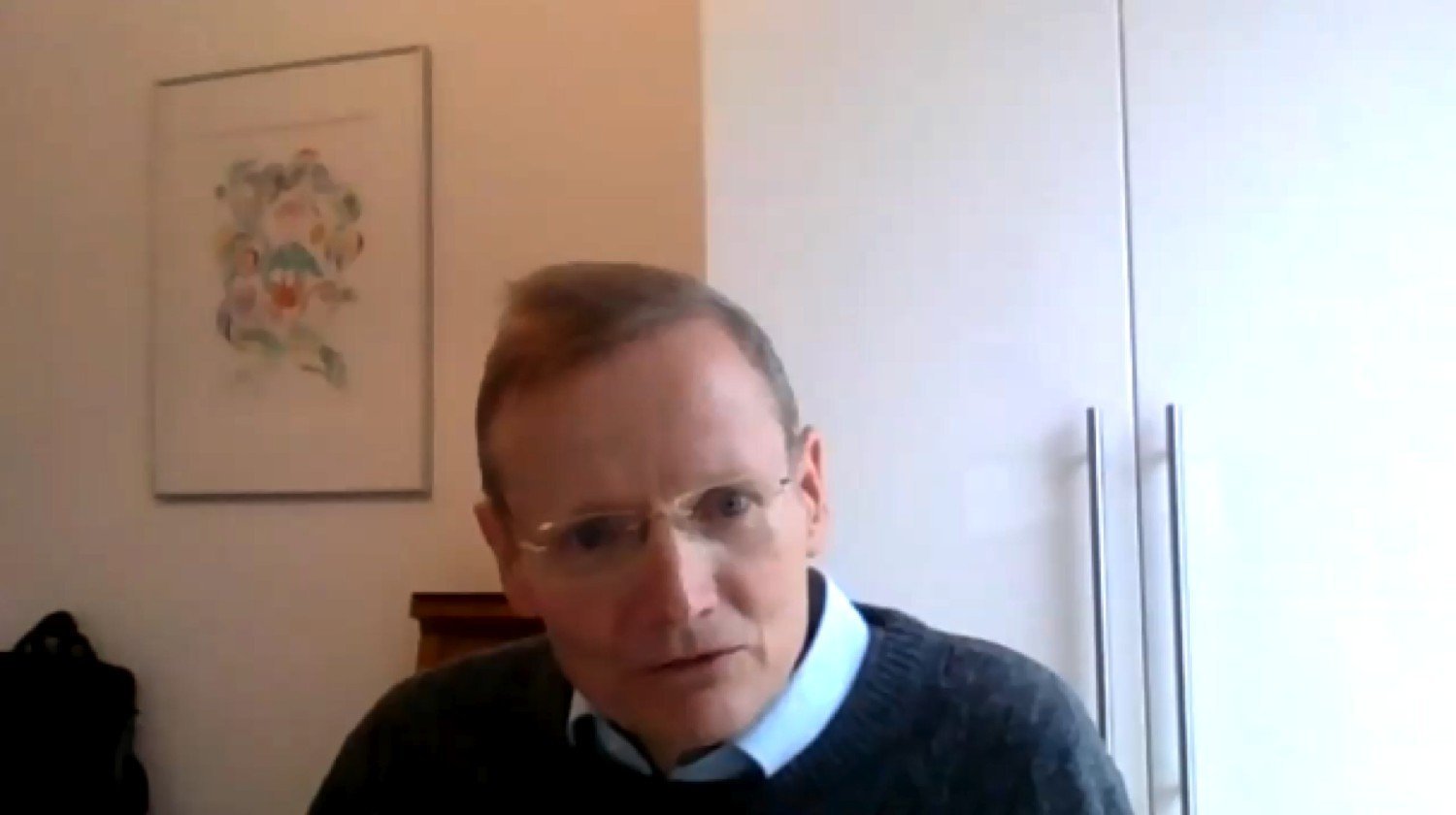Ricardo Hausmann
Venezuelan. Professor at Harvard’s Kennedy School, Director of the Growth Lab
1. Why does economics matter?
Well, I think economics is, if you want, a science that I think should be defined by the questions that it asks. And I think it asks important questions about how to generate prosperity in a society, how to generate stability in a society, how to generate inclusion in a society, and how to generate sustainability in a society and so on.
So I think the questions that motivated it are important questions for societies. Some economists like to define economics by the methods that it uses. But my impression is that’s the wrong definition because the methods evolve as we learn more, how to do science, as we can think through new approaches, new methodologies. So I think that the questions are durable, the methods are less important or less defining.
2. What are the differences between economic science (academic economics) and economic engineering (policymaking)?
I think this is a great question and it’s a fundamental question. I think that there are in general two types of questions you can ask about the world. And one is: what is it like, how is the world, what is the reality out there? And the second question are how-to questions: how can you change the world? So the first question, say, it’s like physics or chemistry: what is the nature of reality out there and what are the regularities or the laws that we seem to follow or not?
How to think systematically about that reality. And the second one is how do you change the world? How-to questions. So those are questions in engineering, if you want.
Now, in a university, there’s a physics department and there’s an engineering department. And there are physicists that teach in the engineering department. But engineering is not physics. It asks different questions and it mobilizes different sets of knowledge to answer those questions. So maybe if you want to make a tool that uses electricity, that’s fine. But you may also need to know about plastics or about ceramics or about glass or about metals or about other things, because you’re making a tool and you’re going to have to know everything that the tool requires.
So I think of myself, I’m a professor at the Harvard Kennedy School, which is a public policy school, so I would like to think that I’m in the engineering department. But I’m at a university, I’m an academic, I’m supposed to be publishing stuff and so on. So I think of myself as an engineer that also likes to dabble into physics. But those two disciplines, at least in our head, should be clearly distinct - that the how-to questions involve integrating a lot of knowledge that is not as separable as when you ask an analytic question about the nature of the world.
So when you think about the world, you can say, oh, let me abstract from the wind and the friction of the air and let me assume how things would work in a vacuum and so on. When you do engineering, you cannot assume that there’s a vacuum and there’s no friction of the air. You have to design for things as they are. As they like to say, there’s no such thing as a perfect suit. There’s only such things as a perfectly tailored suit.
And engineering questions involve a lot of tailoring, it does not involve a lot of general principles that are universal.
3. What role does economics play in society? Does it serve the common good?
So there are at least two parts of that question, I think. What is the proper relationship between, say, the sciences or the engineering and society?
And the second question is what constitutes the common good? And I think that one of the things that in a democratic society must be clear is that the common good is not something that pre-exists, it’s something that emerges. It’s something that should be the outcome of some participatory political process where everybody can voice their preferences and say, you know, do you want more of A or more of B, what’s the right trade off? Should we open up the schools because education is important for the kids, or should we keep them closed because the pandemic is a problem?
What’s the right tradeoff between those two risks, et cetera, et cetera? So those preferences and those views have to emerge from some participatory political process that I think it’s important. The moment you think that the common good can be defined ex-ante without participation, then you say let’s make ourselves into a dictatorship - let’s give all the power to economists and let make them all the decisions. What I think that economics should do is it should participate in that process, maybe on opposite sides of that process by people trying to make their best case, their best argument for whatever vision they have.
The judicial system in the Anglo-Saxon tradition was based on the idea that we have a prosecution, you have a defense, you have a judge that makes sure that the process is fine and then you have a jury that is the final decision maker. So I think I can see economics in the prosecution and economics and the defense and let the process reveal more information. In that sense, I’m a little bit more Popperian, if you want, in the sense that an open society is the way to get to objective truth or to uncover things that are more appropriate.
4. Economics provides answers to problems related to markets, efficiency, profits, consumption and economic growth. Does economics do a good job in addressing the other issues people care about: climate change and the wider environment, the role of technology in society, issues of race and class, pandemics, etc.?
I think that if you define economic as a set of questions and so on, I think that the questions you just mentioned are super important and to the extent that economists can make progress then it’s great.
So, for example, I think that economics has made very significant contributions to the study of global warming and climate change and so on. And what’s the nature of the externalities and how to deal with them, and should we put a carbon tax or a cap and trade? All these other mechanism designs, as they would call it in economics, to figure out how to deal with climate change, how to encourage a certain technological innovation process that would deal with climate change.
All of those are legitimate questions in economics, and I think that economics has made a significant progress in them. In other dimensions, for example - race, identity and so on - these are issues that George Akerlof, working with Rachel Kranton, has made really seminal work. The economics of identity is a field that I think should deserve much more attention, the economics of discrimination, et cetera.
All of these things are valid questions. And to the extent that they are important social issues, I think that they should remain part of the legitimate questions in economics.
5. As we live in an age of economics and economists – in which economic developments feature prominently in our lives and economists have major influence over a wide range of policy and people – should economists be held accountable for their advice?
So I think there is a sense of, I mean, I don’t think economics should be held accountable in the same way as you wouldn’t say that engineering should be held accountable for the Challenger disaster. Accountability to some extent is an individual thing. One of the problems of accountability also is the problem of attribution. Nothing that happens in society can be easily attributed to one original cause because it’s the outcome of many moving pieces.
And it’s hard to, very often hard to, attribute responsibility to one particular action or one particular thing that somebody said at a meeting or advice that somebody said because in their defense they can always say “yes but I mentioned that in the context of ten other things that didn’t happen” or whatever, right.
So I think that attribution is a problem on the bad side when things go wrong, or on the good side - everybody wants to take credit for things that might have happened without their participation anyway. So I think that what’s more important is that we learn. And to the extent that we make mistakes, that we think about issues with some ideas in mind and then reality ended up being different, that we have the capacity to learn and correct.
So, for example, right now there’s a big debate in the U.S. between people who are very friendly to each other, say between Larry Summers on the one hand, and maybe Paul Krugman or others or Janet Yellen on the other, about how much is too much. What is the productive capacity of the economy? Well, economists used to think that if unemployment went below five percent or four percent, you would get inflation accelerating and the economy overheating and putting the possibility of a need for a recession to cut the process off.
Then we have seen unemployment go to three and a half, three percent and so on, and nothing happened to inflation or whatever. So right now, we know that in some sense, we know that we don’t know. We thought we knew. It’s very important that when the world tells us something that we thought we knew but didn’t, that we recognize it and that we correct. And that in my mind is the most useful thing that we are able to learn from our own priors.
In some sense I’m very Bayesian in the sense that you have some priors and then something happens and then you update your priors. How good is our process of updating? I would give it to you that there are some economists that believe so much their assumptions that they cannot imagine that their assumptions might not be warranted but cannot think outside of them. And I think that that’s a defect in thinking. That’s why I think it’s very important that we leave enough room for us to update our assumptions about the world, through the experience that we have in acting on the world.
6. Does economics explain Capitalism? How would you define Capitalism?
There’s a famous quote by Paul Krugman, who once said, “those that can do; those that can’t discuss methodology.” We have the world as we have it. If you want to give it a name of capitalism, that’s fine. But if we find it wanting and if we can imagine ways of making it better, let’s work on that. And then maybe in the future, some historian is going to say this was the birth of X or the birth of Y, or they will hyphenate that capitalism into something new.
But you were just solving problems. So I think that most people would agree that the health care system in Canada works better than the health care system in the US, at least in generating more satisfaction to the public and in more coverage and better health outcomes at a lower price. That would require a set of reforms in the US, which would maybe still be called capitalism or whatever, but it would be not the same as before. It would be a change.
And then historians will maybe label that as a watershed event or not. I think that capitalism, in Marx’s mind, what he was thinking is that there was a bunch of production happening in these small units of family businesses. The shopkeepers and artisans and staff that in his language they owned their means of production. They own the tools with which they would do their stuff. The butcher, the baker and the candlestick maker.
And what impressed him was the idea that there was this transformation in production where production units would become much bigger, more people working there and with machines and stuff, and somebody would own these businesses and these machines and so on, that they would own the means of production. And the others would just, in his language, sell their labor to the owners of the means of production. And that was, in his mind, capitalism.
So if you take Marx’s definition, then to a large extent capitalism has been a surprising failure in much of the world, because while in the U.S. something like 90 percent of people are wage labourers - they work for an employer that pays them a wage, which is what Marx had in mind what was going to happen, it did happen in the US - one out of three people in the state where Monterrey is in Mexico don’t have a wage. They work as self-employed or in mini enterprises like the ones that existed when Marx was writing and he thought they would disappear. Well, that’s one third of all of the labour force.
It’s a sixth-sevenths of the labor force in Chiapas, Mexico. And it’s a nineteen-twentieth of the labor force in India. So in a lot of the world that transformation didn’t happen and I think it didn’t happen. And that means the world remained more like people who are self-employed, artisans working independently and so on. And that is associated with low productivity, low incomes, high poverty and so on. Why?
Because what we have discovered, at least my take on what the societal challenge is, is that in a large firm you have what Adam Smith would have called the division of labor, I would call it the division of knowledge. That is, in a large firm we have people who know about more different things, people who know about procurement, about production, about marketing, about branding, about finance, about accounting, about taxes, about contracts, about human resource management, et cetera.
And so the whole knows more than any individual could possibly know because you’ve put different bits of knowledge in different heads. And by bringing all of these heads together, a social brain develops that can do more than any individual could. And that has taken the form of this what you might want to call capitalist enterprises. But we’ve also figured that modern society has many other forms of organization. To my knowledge I don’t know of any top rank for-profit universities.
They don’t exist in my mind, there are no such thing as top quality for-profit universities. There is a huge sector of NGOs and stuff that does a lot of things that cannot be organized for profit. And these things have emerged. There’s a huge participation of governments in many, many things.
There is a market for cars and you can decide not whether you want a Toyota or a Ford or what you want and these are private companies and so on. There is no market for highways. And without highways, the car is not very useful. So there is an enormous complementarity on things that are organized collectively and things that are organized through markets. So I think that’s the society we live in and that part of the problem, part of the ideology, of thinking that society could potentially have been organized only through markets and that if left on their own they will do great things and so on, we would all be with cars and no roads. So that would not be a world where we would want to live in and it’s not the world we have inherited. So I think that, you know, call whatever you want the society we live in - I would leave that to the historians - I think we should all be focused on how to make it better.
7. No human system to date has so far been able to endure indefinitely - not ancient Egypt or Rome, not Feudal China or Europe, not the USSR. What about global Capitalism: can it survive in its current form?
We are probably at an interesting crossroads: there are two radically different trends out there. One trend is the fact that we were in a unipolar world where the US was preeminent after the collapse of the Soviet Union. We are not in that world anymore. There is more distributive power in the world and and if the world moves in the direction that most people would like to see it move, that is where poor countries tend to catch up and so that they develop living standards that are closer to where rich countries are today. Well in that case those gaps between the poor and the rich countries would be smaller. And consequently those gaps in power would also be smaller. And the US, which represents something like five percent of the world population, is not going to be the dominant player. So how do you live in a world where there are more people who feel empowered, autonomous and so on?
What’s that equilibrium? That’s one source of pressure. I like to say that people complain a lot about inequality, but a lot of the pressures on the world are the consequences of increasing equality. That is, the fact that the poorer countries are catching up means that there’s more competition in many industries that were comfortably stable in rich countries.
A second dimension is that there’s been a tension between having sovereign policies and having common policies. There is a benefit of having sovereign policies because then democracy can decide what you want, et cetera. But in a world that is interconnected, having a sovereign policy is like having the right to build half a bridge: if your bridge connects with your neighbor and he does not decide to make the bridge or she doesn’t decide to make the bridge, you get half a bridge.
And on half a bridge, you don’t get half the traffic, you get zero. So there is a benefit of having common policies. And that’s why you’ve seen so much pressure in the European Union, say, to want to become a bigger thing where yes, we are going to abandon some of our sovereign policies but in exchange for that we’re going to have the benefit of having policies that are more common.
So I think that’s a second tension that’s out there. Some people think, my colleague Dani Rodrik thinks, that the idea of common policies has gone too far, that we need to re-empower, that the balance between common policies and sovereign policies has moved too far in one direction.
My sense is that the world is in flux. The current equilibrium is not likely to last. It’s generating a lot of political tensions. But I hope, and there’s one more thing: there’s a lot of talk about trade and protection, but one of the things that is happening right now is that Julian is in Canada, Fabio, you are in Berlin, you’re Italian, and I’m here in the U.S. and am Venezuelan and we’re producing some output that is done in common.
And we cannot imagine what is a world that would prohibit us from doing this. One of the things that happened with COVID is that we learned that we could do a lot of things from home. But anything that can be done from home can be done from abroad. So at least in terms of all of these things that are tele-workable, I think that the world is going to become more globalized and I don’t see an easy way for governments to prohibit that, and in any case I don’t see why they would.
And I don’t want to imagine what are the infringements on our individual liberties that would allow them to prohibit us from doing what we’re doing right now. So in some sense I think that the arrow of globalization is with us, that there will be questions of how do you organize political systems given this integration of knowledge and information that characterizes the world.
But I look at our current program and I look at the future with excitement. I don’t find that as a dark, dangerous future. I hope we are able to manage the consequences in a way that makes the future more promising.
AoE: If I could just come in for a sec. So there’s a setback for physical globalization in some form, but digital globalization, obviously, it’s accelerated so that you’re talking about the digital globalization.
The expanding scope of digital globalization because it involves the globalization of tasks.
We engineer global value chains because many of the things that that can be done from home will be done from anywhere on the planet and you have now these these digital nomads that realize that they can work from anywhere, so why not from a national park? These are trends that our institutions were not designed with those possibilities in mind. And they’re bound to generate issues.
8. Is Capitalism, or whatever we should call the current system, the best one to serve the needs of humanity, or can we imagine another one?
There was this Spanish philosopher called Jose Ortega Gasset who said “I am I and my circumstances”, that is, I’m not I. So we live with a set of circumstances and we cannot walk away from those circumstances. I think that we are full of challenges that we know of and a bunch of challenges that we are probably not even aware of, and that dealing with those challenges will force change and that change will eventually make us look a different from the way we currently look now.
Those changes may not have been designed, they might have emerged, they will accumulate to something that will look different.
So I think that right now we understand that. In the old language of, say, Hayek, capitalism, if you want, was about freedom. And property rights was a way of guaranteeing individual freedom. And freedom was sort of like a unifying concept. I think that modern technology, by requiring many different people who know about different things collaborating, puts a greater accent on collaboration.
And so, for example, while famously Milton Friedman said that the social responsibility of the firm is to its shareholders, that now has come into question by everybody that now they want to say it’s the stakeholders. Why? Because you rely on your suppliers, because you rely on your workers, because you rely on your neighbors. You want to make sure that they’re not going to die because you polluted their environment, that you want to rely on your customers and their trust and so on, that you want to rely on your creditors and your investors.
So there’s a whole ecosystem of people that you rely on, that their trust and support you seek and require. And so I think that whatever capitalism that you want emerges, it’s one that is able to secure a more stable and more productive forms of collaboration. And collaboration is among free people, but among free people that collaborate.

